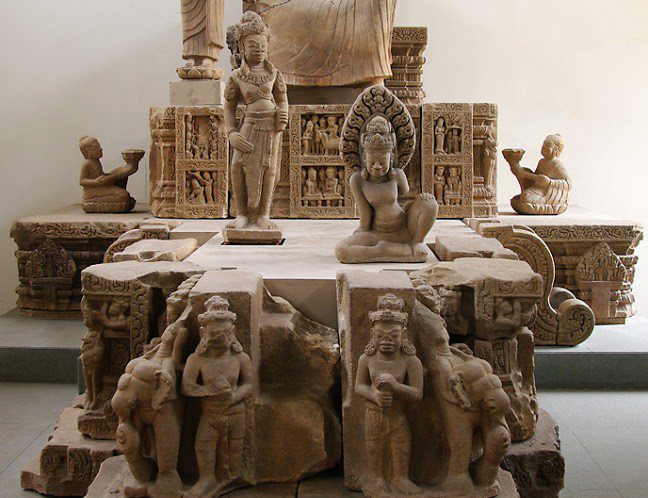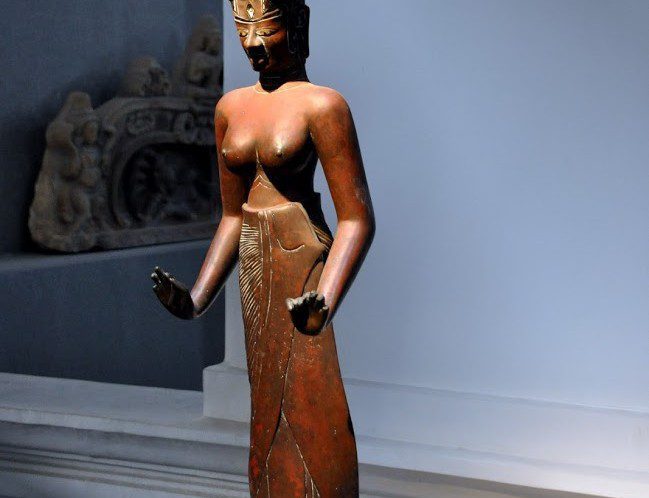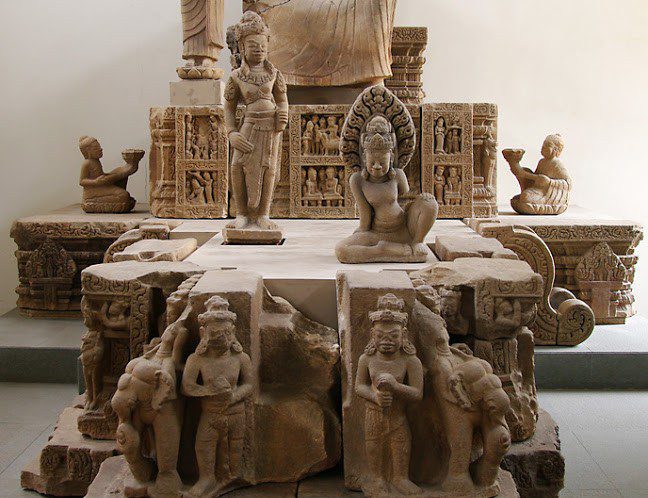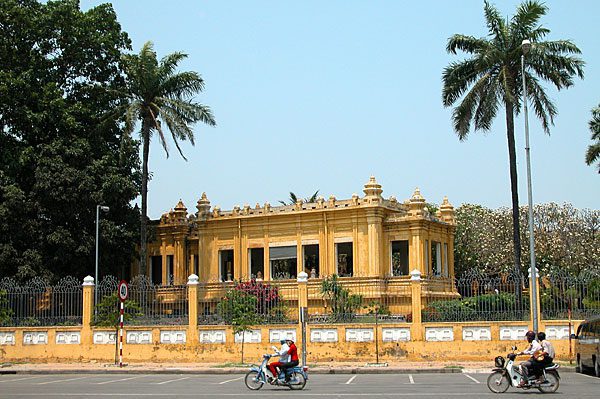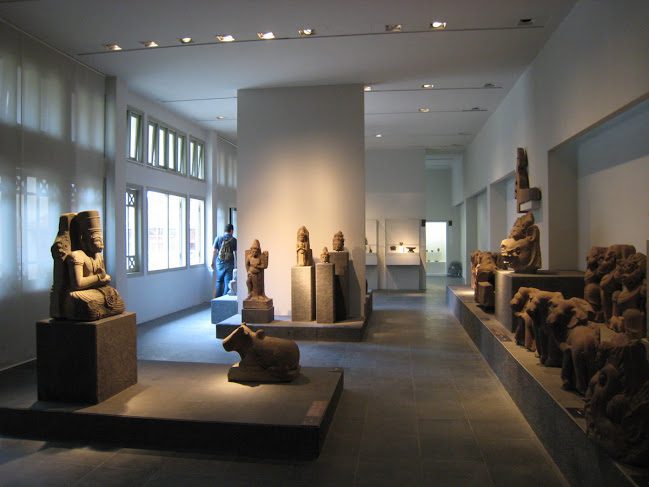The Museum of Cham Sculpture
When visiting the Museum of Cham Sculpture in Danang, whether in the morning or in the afternoon, on rainy or sunny days, visitors still perceive an individual atmosphere particular to this place, the reverie of reminiscences.
Built in July 1915 with the support of the Far-East Archaeological Research Institute in Hanoi, the Museum of Cham Sculpture now has nearly 2000 large and small sculptures. Of these, 288 are on display inside the museum, 187 objects in the garden and more than 1.200 objects are reserved in the storehouse. Most of the sculptures in the museum are original and mainly of three kinds of materials, including sandstone, terracotta and bronze. The majority of these sculptures from the 12th to the 15th century are made of sandstone with different art styles.
The sculptures displayed here almost have the same drifting life as the very destiny of the once-glorious culture that generated them. Through the ruins of time, war and even the oblivion, such original Champa sculptures were hardly collected and brought here by many human generations. And in this systematic collection, these works of the ancient Champa artists again have a new life.
Coming to visit the museum, it seems that we see again the glorious time of the past of a nation for whom both the passion for art and the creative talent were already at a very high level. The mysterious world of deities, the pictorial legends, the religious symbols, the curving lines of the bodies of dancing girls, the features of full swelling breasts, the smiles of a vague time… all of these are shown very lively and in much in details.
Despite profoundly influenced by the architec
ture and sculpture of the Indian civilization, the ancient Champa, nevertheless, has a vision of life and religion according to their own feeling. Such refraction brought to their world of art a really distinct beauty. It is spiritual though it is very close; it has unique though it is familiar. It is a subtle and distinctive beauty.
